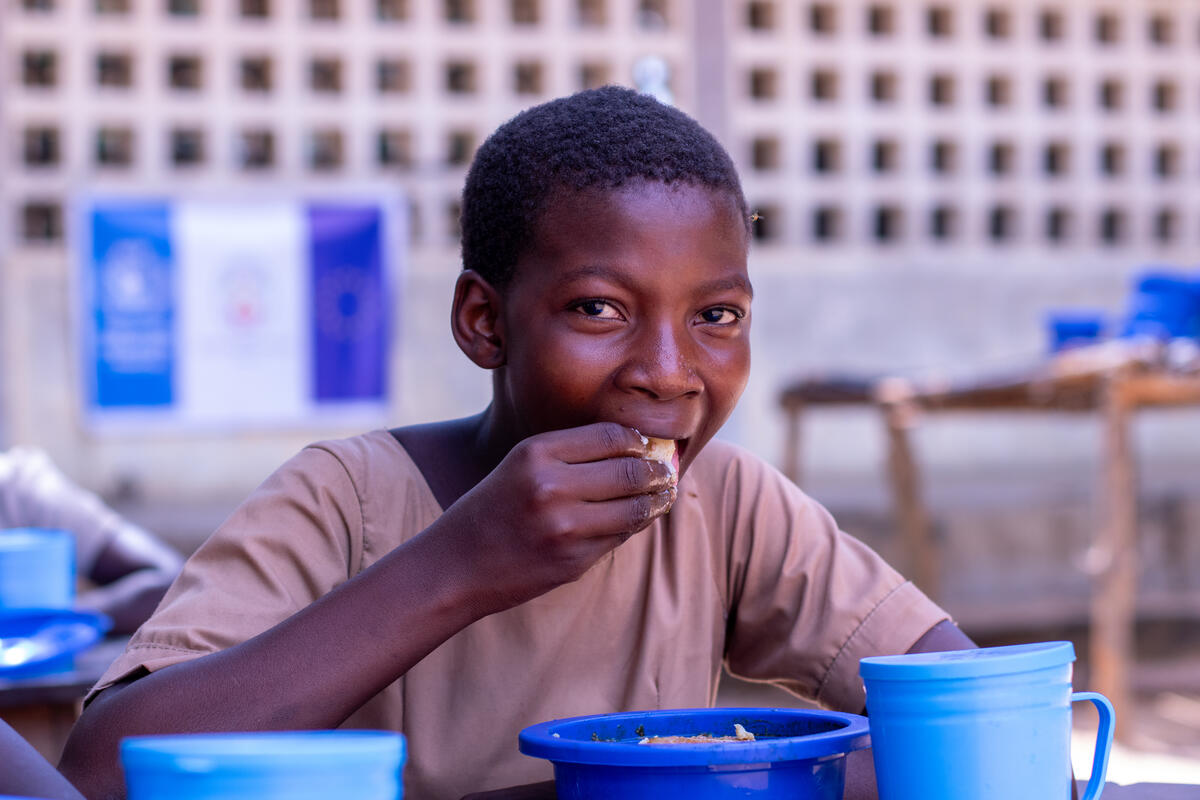
Representatives of governments and United Nations World Food Programme (WFP) offices in Brazil and Togo met virtually on November 14 to mark almost 10 years of partnership in school feeding and plan the next steps of this cooperation. During the meeting, the participants listed the advances made in recent years and the challenges in the new scale-up stage of the school feeding programme in the country.
Togo is now preparing to increase the supply of school meals by 35% by 2025, reaching 300,000 beneficiaries. “This announcement clearly shows the progress of this small story of working together, year after year, to build a favourable scenario for the development of Togolese children in terms of food, security and nutrition,” said Daniel Balaban, Director of WFP Centre of Excellence Against Hunger in Brazil.
Togo hosted the first WFP-operated school feeding programme in 1963. In recent years, through technical cooperation with the Brazilian government and experts from WFP Centre of Excellence Against Hunger in Brazil, the WFP office in Togo has been working closely with the Togolese government to strengthen the school feeding programme in an integrated model, based on local production. To this end, in 2024 there will be a technical mission to deepen knowledge exchanges between the two countries in specific areas related to home-grown school feeding.
In this new phase, Togo intends to find solutions to challenges such as mobilizing resources to expand the programme, structuring the operation and financing of home-grown school feeding, and with training, monitoring, and logistics mechanisms.
In addition to the director of the Centre of Excellence, the meeting was also attended by the director of WFP in Togo, Koisha Aboubacar; Togo’s Minister of Grassroot Development, Myriam D’Almeida; the Brazilian ambassador to the country, Nei Bittencourt; and the deputy director of the Brazilian Cooperation Agency, Luisa Lopes.
History of cooperation
The first study visit attended by a Togolese delegation to learn about the Brazilian national school feeding programme, known as PNAE, took place in 2014. The programme of the visit, carried out jointly with Burundi and Benin, included meetings in the cities of Brasilia and Salvador on how Brazil develops, structures, finances, implements and evaluates its social protection programs, especially the PNAE. Following this visit, the government of Togo made the first investment in the country’s school feeding programme.
In the following years, the WFP Centre of Excellence supported the country and the WFP local office in the development of its national school feeding policy. This policy, in turn, was a crucial step ctowards the construction of a national home-grown school feeding programme, as it began to guide multisectoral coordination between the Togolese ministries of Agriculture, Local Development and Education.
In 2016, with the support of the WFP Centre of Excellence in Brazil, the government of Togo held its first “National School Feeding Forum”, which was attended by 300 people, including Togolese national actors in the field of school feeding and representatives from Brazil, Benin, Burundi, Côte d’Ivoire, Niger and Senegal.




